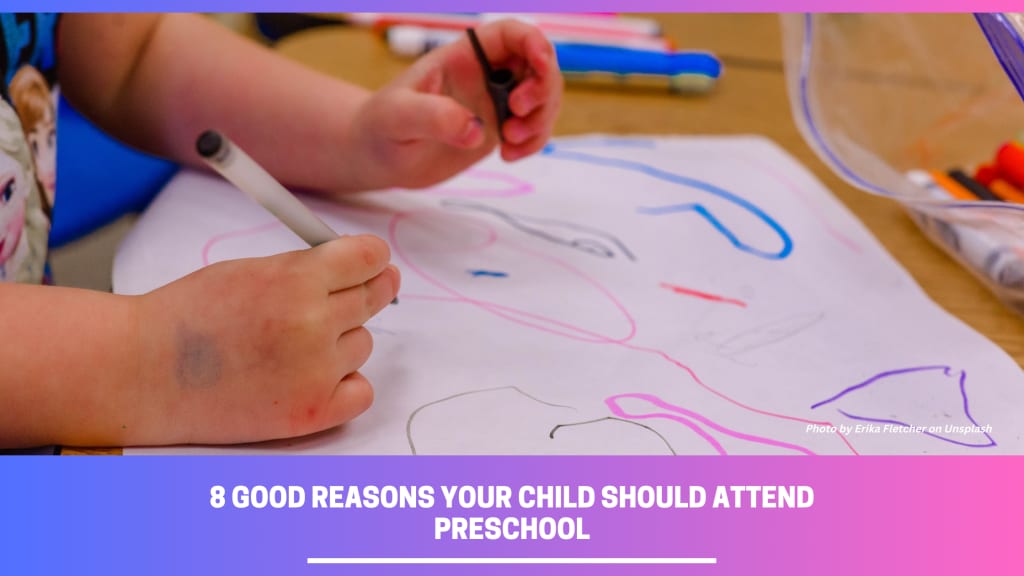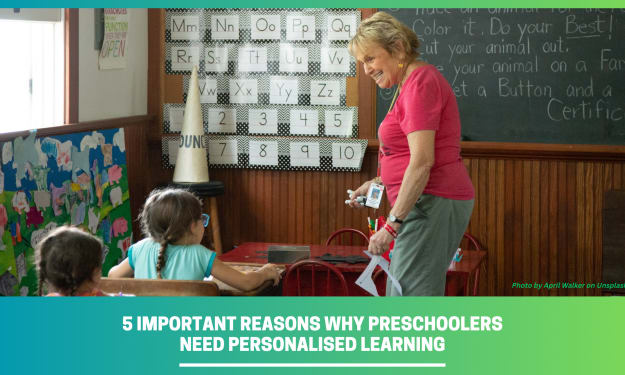8 Good Reasons Your Child Should Attend Preschool
The following are eight reasons why your child should attend preschool:

It can be difficult to send your child to school for the first time, especially if they are only 3 or 4 years old. A good preschool education having assistive technology for preschoolers, on the other hand, will prepare your child for greater success in all aspects of life.
Preschool provides children with a solid foundation in social, pre-academic, and general life skills that will help them succeed in school and beyond.
The following are eight reasons why your child should attend preschool:
Preschool Promotes Language Skills
Language skills are best learned in a multilingual environment. Preschool teachers assist children in developing language skills by introducing new vocabulary and asking thought-provoking questions throughout activities.
Because they have so many opportunities to explore new things, listen to read-aloud books, act out stories, and sing, preschoolers have a distinct advantage in learning to speak successfully.
It Helps Children Develop Motor Skills
While literacy, numeracy, and cognition are important, they are not the only ones that children should learn. Many preschool activities are designed to help children develop fine motor skills and physical coordination.
Children are encouraged to develop fine control of their fingers through projects such as bead threading, painting, and even cutting with scissors. Many preschools also give children the opportunity to jump or climb on a regular basis as a way to challenge themselves.
It Helps Children Develop Social Skills
Children spend a significant amount of time at preschool with other children and adults who are not members of their families. In this setting, there are several opportunities to learn how to make friends, collaborate, listen, and develop core conversation skills.
It Develops Self-Regulation Skills in Children
Little disagreements will almost always arise when children play and participate in activities with their friends, causing irritation, anger, and other emotional issues. These confrontations provide opportunities for students to learn.
Teachers can assist students in becoming more aware of how their actions affect others and in developing interpersonal problem-solving skills. Preschoolers leave class with emotional skills that will serve them well throughout their lives.
It Boosts Pre-Literacy Skills
Teachers in top preschools use a variety of games and activities to help children develop pre-literacy skills. Children learn rhymes that help them distinguish between sounds, listen to read-aloud stories, and sing alphabet songs while playing with magnetic alphabet letters.
In addition to understanding these fundamentals, children frequently develop a sense of joy and motivation to continue learning. Preschool pre-literacy acquisition occurs during naturally engaging activities for children, resulting in positive associations with reading.
Builds a Foundation For Math
Preschool interactive activities does not teach children mathematics until they are ready, but it does lay the groundwork for future success by engaging them in fun activities and supervised play. Children enjoy matching, sorting, and counting games, as well as board games that help them understand numbers and categories.
Preschool Environment Nurtures Children’s Creativity And Curiosity
Young children have active imaginations that can be developed to assist them in learning and becoming more creative. Top preschools have environments that encourage exploration.
Preschool teachers are trained to assist children in the development of their own ideas and concepts. Rather than emphasising "proper" responses or actions, they encourage children to inquire, ask questions, and listen to their ideas.
In a dynamic environment with the right adult relationships, children are more likely to develop curiosity and creativity.
Children Learn To Take Care Of Themselves
In preschool, children are frequently given opportunities to practise being responsible. Preschool teachers teach and expect children to wash their hands, keep personal belongings in their bags, and return toys to their proper places.
These components lay the groundwork for learning, allowing your child to thrive both socially and academically in primary school.
About the Creator
Amit Kumar
Full-time thinker & part-time writer...






Comments
There are no comments for this story
Be the first to respond and start the conversation.